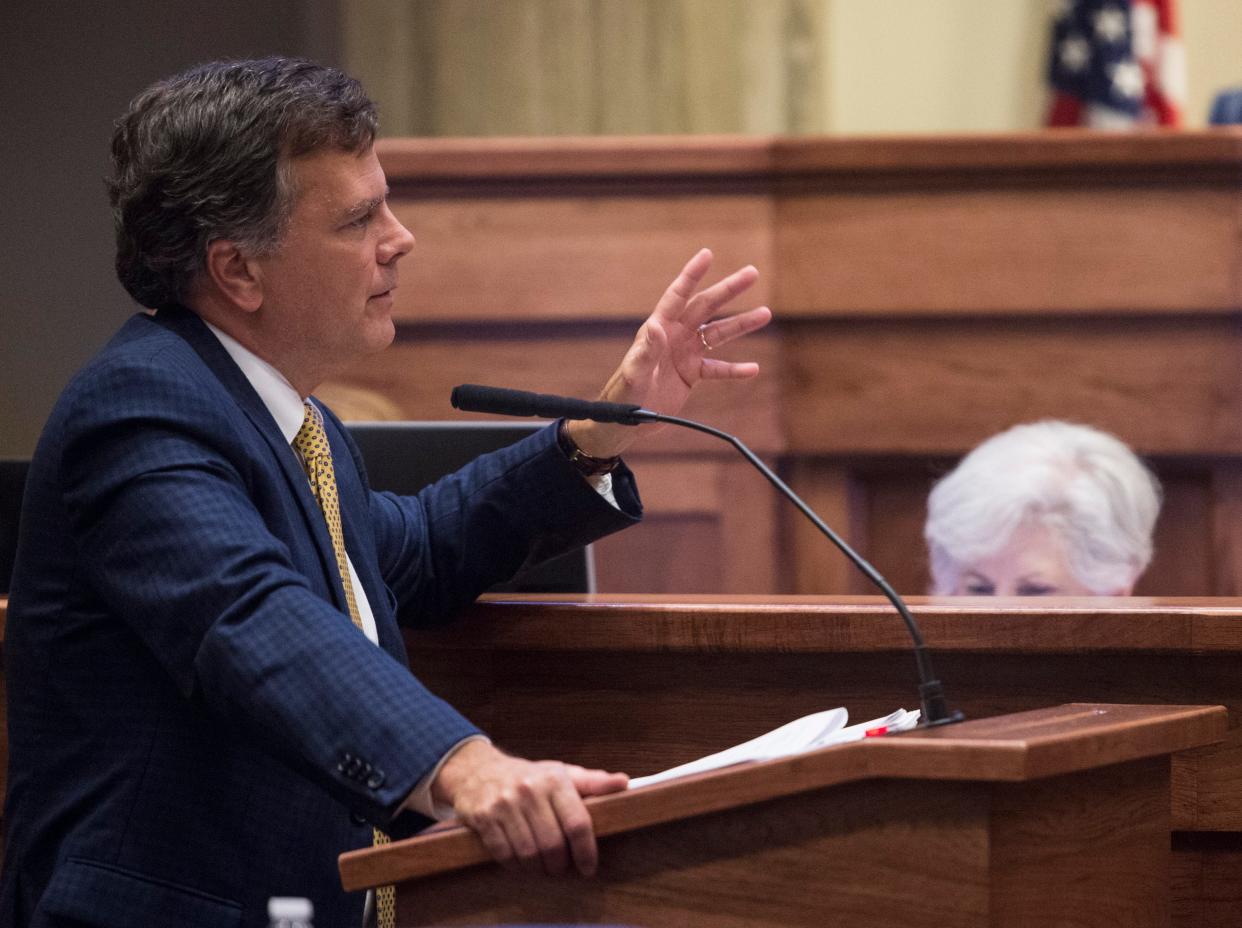Alabama Senate approves $8.2 billion education budget with major raises for experienced teachers

The Alabama Senate on Thursday approved a $8.1 billion Education Trust Fund budget with significant pay raises for teachers and increases in funding for K-12 programs and colleges and universities.
The $8.2 billion budget, the largest in nominal terms in state history, passed 32 to 0 with very little debate. It goes back to the House of Representatives for concurrence or a conference committee. The House approved the budget on March 8; its version was about $589 million smaller.
Sen. Arthur Orr, R-Decatur, the chair of the Senate Finance and Taxation Education Committee, said after passage he hoped the budget would help lift educational performance around the state.
"We have a lot to offer, but when people outside of Alabama look at our state and look at our educational offering, in particular companies looking to relocate, they're not attractive in a lot of areas," he said.
The budget includes pay raises for all education employees; major pay raises for teachers with 20 years' experience or more; bonuses for education retirees; a 59% increase in funding for the Alabama Math, Science and Technology Initiative (AMSTI); a 9.7% increase for community colleges and a 15% increase for pre-kindergarten
The state's four-year colleges would see funding go from $1.330 billion to $1.448 billion, an increase of $118.2 million (8.9%). The increase for Alabama State University would be smaller than average: the university's state funding would go from $52.4 million to $55.8 million, a $3.4 million increase (6.5%).
Legislators had long planned a 4% pay raise for teachers and bonuses for education retirees. Education retirees have not seen a COLA adjustment since 2007, due in part to changes that require the full cost of a COLA to be paid up front: a 1% COLA for retirees would cost nearly $200 million.
The budget would give education retirees a one-time bonus equal to $2 a month for every month of service. A retiree with 20 years' experience would get a bonus of $480. A retiree with 30 years' experience would get a bonus of $720.
The budget would also include funding for a one-time education retirees' bonus, equal to $2 per month of service. A retiree with 20 years experience would receive a bonus of $480. A retiree with 30 years' experience would receive a bonus of $720.
The Senate-approved version of the budget keeps the 4% pay raise for teachers with less than nine years of experience. But the raises will be higher for teachers with more experience than that, and significantly more in some cases. A teacher with a bachelor's degree and 20 years' experience would get a $5,404 increase on Oct. 1 (10.4%). A teacher with a masters degree and 30 years' experience would be paid $72,679 next year, a $9,451 increase (15%).
In addition, the budget replaces the current system of automatic raises for teachers every three years with a 1% raise each year for teachers with nine years of experience, and lifts a cap on raises after 27 years.
"We really need to do something about the middle years," Orr said, "Our entry-level salaries are pretty good compared to sister states. We fall behind on the three-year raise program we have."
The Legislature could freeze the the automatic increases if the financial situation of the state goes south. It could also increase the automatic raises, or vote to increase base pay for all education employees. Pay raises for teachers typically come from votes of the Legislature.
"Even though this is an incentive for people, that doesn't preclude us in good years, like this year, to give that extra 4%," said Senate Minority Leader Bobby Singleton, D-Greensboro.
More: Alabama Senate committee approves 'historic' raises for experienced teachers
Besides the AMSTI increase, the budget also allocates $15 million to implement the Numeracy Act, a law aimed at raising math performance around the state. It also increases funding for the Alabama Reading Initiative from $80.2 million to $94.2 million, a $14 million increase (17.4%), part of implementing the 2019 Literacy Act. Orr said those increases were part of a focus on the early years in education.
"If we invest those dollars, both in the Literacy Act and the Numeracy Act, and get them those core skills, I think it will be an investment no only in the life of that child, but in society," he said.
The budget is the largest in nominal terms ever approved by the Legislature. In 2008, the Legislature approved a $6.7 billion budget (later cut), equal to about $8.7 billion today.
Contact Montgomery Advertiser reporter Brian Lyman at 334-240-0185 or blyman@gannett.com.
This article originally appeared on Montgomery Advertiser: Alabama Senate approves $8.2 billion education budget with major raises for experienced teachers

